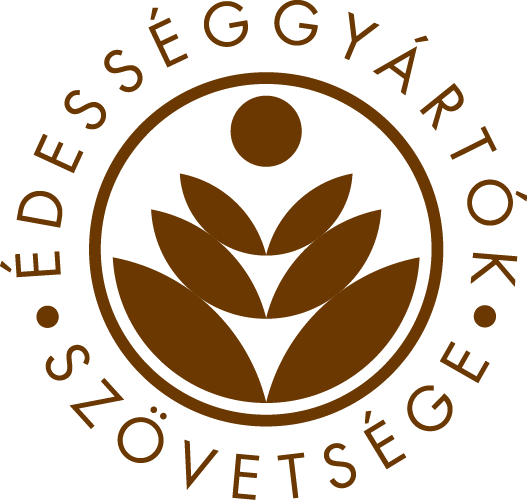Lollipops, drink powders, biscuits, pralines at the heart of innovation
Innovation did not pause in the confectionery industry during the pandemic – on the contrary, product development accelerated, it was revealed at the summer trend analysis press event of the Association of Hungarian Confectionery Manufacturers. Domestic and multinational manufacturers have come up with exciting, seasonal innovations, and the transformation of trade channels and the modernization of production and logistics processes have also accelerated.
Confectionery industry is one of the most innovative sectors in the food industry, and this potential can be particularly well exploited today as it faces several challenges ranging from diverse, conflicting consumer needs to the economic consequences of the pandemic and climate change. Hungarian confectionery manufacturers are responding to these challenges with intensive innovations. To increase sustainability, they are modernizing factory cooling and heating systems, installing solar power solutions, reducing the number of materials used in packaging while striving for recyclability, reducing water use in their production processes, and promoting moderate consumption. They are also continuously developing and automating their manufacturing technology to respond quickly and flexibly to changes in consumer demands and market conditions, while expanding their offerings with whole-grain, organic, sugar-free, protein-enriched, and high-cocoa content products.
In the past, Hungarian confectionery manufacturers also reacted quickly to market changes, they also kept pace with the development of technology in the product category of summer snacks, it was revealed in the presentation of Dr Róbert Török, Director and Chief Museologist of the Hungarian Museum of Commerce and Hospitality, which hosted the press event. For example, under the name ‘cold lick’, ice cream was enjoyed by domestic consumers as early as the 18th century, and the lollipop arrived in Hungary in 1925. Just seven years after the new format was invented in America in 1908, lollipop candy was already manufactured in Pécs under the Sopianae name.
The government primarily supports modernization, automation and digitalization developments in the food industry aimed at increasing efficiency and added value through the Rural Development Program and GINOP (Economic Development and Innovation Operational Program) tenders. In the period from 2021 to 2027, a total of HUF 750 billion is available for this purpose. In the first half of this year, market participants were able to apply for a total of HUF 250 billion support for the implementation of low-value and complex food industry developments, which will be followed by repeated tenders scheduled every two years in 2023 and 2025. With the participation of industry organizations, including Hunbisco, the Ministry is working on the development of a digital food industry strategy and the update of the Hungarian Food Book, including the revision of the confectionery products directive and the regulation of handmade products.
On the consumer side, the need for lifestyle-friendly nutrition is one of the defining trends in the confectionery market, said Sándor Sánta, President of the Association of Hungarian Confectionery Manufacturers. While the more informed and financially stable consumer is looking for tasty, organic, natural, protein-rich products with little or no sugar that don’t include sweeteners either, those with more limited resources expect sweets to be delicious, plentiful, and cheap, it turned out from a fresh survey (Euromonitor International, Voice of the Consumer: Health and Nutrition Survey, 2021).
Meanwhile, the combined effect of the pandemic and climate change is also shaping the market. The production of raw materials is becoming more and more difficult, crops critical for confectionery including cocoa, coffee and vegetable oils are becoming unstoppably more expensive, and the costs are also rapidly increasing due to the lack of labor and packaging, declining transportation capacities and the enforcement of health protection measures.
Lollipops, drink powders, biscuits, pralines
With its handcrafted lollipops, Foltin & Foltin Ltd. conquered the foreign market first and then the domestic consumers as well. The company only uses natural ingredients, including the colorants, and they can stay competitive on the international market with a relatively low capital investment – said András Foltin CEO and Tamás Régi Sales Director. Founded in 1991, the manufactory now supplies 14 countries – its customers include Disneyland in Paris – and production in 2019 reached 3.78 million units. Foltin & Foltin is known for innovative solutions, for example the company logo that transfers onto the tongue from the lollipop is used by companies in Instagram campaigns. Also available in the sugar-free version, the handcrafted lollipops thus appear as souvenirs that can be flexibly adapted to individual needs: as souvenirs, they are also offered by adventure parks and sports associations.
This year’s marks the 35th anniversary of TUTTI Food Industry Ltd. and the company completed its new office building and modern, narrow aisle high warehouse in December last year, which will provide an additional 3,000 pallet capacity for storing raw materials and manufactured products over 600 square meters. Sustainability is increased with solar panels installed as part of the investment, said Ferenc Németh, the company’s Director of Sales. TUTTI’s first product, the patented ice cream powder, is now available in 46 flavors, and this palette will be expanded this year with a dragon fruit and peanut version. Also known for its Dutch cocoa powder, the company also produces private label products for chain stores, with 50 percent of its sales coming from exports. Under the BodySelect brand name the company launched a food supplement product line that is sold online. It’s multi award-winning ice coffee drink powder is now available in 3 new flavors (mocha, caramel, and coconut), a decaf and no-added-sugar version as well as a lactose-free and vegan option in five- and seven-dose compact packaging on the domestic market.
Győri Édes will be innovating this summer with free-from products, said Melinda Hadnagy, the leading brand manager of the biscuit product category of Mondelez Hungária Ltd. A no-added-sugar and a gluten-free version of the popular biscuit has been issued, the packaging of which has already been successful in communicating the innovation, and it featured well on social media during the May launch campaign, even before sales of the products began.
Merci’s fruity praline selection, which first appeared in the domestic market in 2017, returns in four delicious summer flavors: strawberry cream, lemon yoghurt, peach & passion fruit and sour cherry cream, for the fifth year in a row, said Orsolya Elek, Storck Hungária Ltd’s Marketing Manager. A brand-new product from the manufacturer is the nimm2 soft Fizzy melting candy with a fizzy filling, real fruit juice and vitamins, which is also available in four flavors. Storck’s other novelty, the nimm2 Smilegummi Funfari gummy candy is also made with real fruit juice and added vitamins and is packaged in nine colors and six flavors, evoking the atmosphere of a safari with long-necked animal figures.
Contacts:
Lollipop: F&F Kft, Foltin András: foltin.andras@foltinandfoltin.hu +36 30 475 7581
Drink powder: Tutti Kft, Németh Ferenc: ferenc.nemeth@tutti.hu +36 30 216 9460
Biscuit: Mondelez Hungária, Kertész Péter: peter.kertesz@mdlz.com +36 70 311 77 44
Praline: Storck Hungária, Elek Orsolya: orsolya.elek@hu.storck.com +36 20 282 1902
Ministry of Agriculture: Strbik Dorina: dorina.strbik@am.gov.hu +36-1-795-2137
Hunbisco: Intődy Gábor: sec.gen@hunbisco.hu +36 70 359 6989
##
About the Hungarian Association of Confectionery Manufacturers
Founded in 1992, the Association of Hungarian Confectionery Manufacturers currently has
26 members and is the ambassador of the producers of quality confectionery to be
consumed with pleasure and moderation. The Association engages in dialogue with the
public and decision-makers and represents the interests of the sector in Hungary and in the
Union. Its aim is to facilitate a supportive environment promoting competitiveness for the
Hungarian confectionery market. It stands for fair taxation, correct regulation, skilled
workforce and high-quality education.
Website: https://www.hunbisco.hu/

